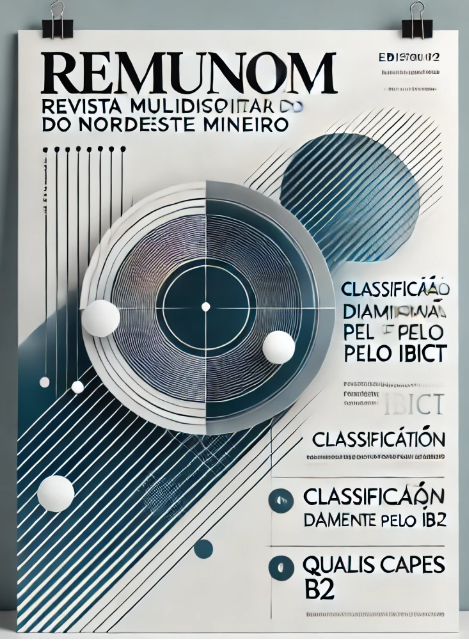MEDIATION AND CONCILIATION IN DIVORCE: DEBUREAUCRATIZING PRIVATE LAW
DOI:
https://doi.org/10.61164/rmnm.v11i1.4110Keywords:
Private Law. Bureaucracy. Autonomy of Will. Divorce. Mediationand Conciliation.Abstract
This article focuses on mediation and conciliation in divorce proceedings, highlighting how these practices can contribute to the debureaucratization of private law. Given the slowness and excessive formality that still characterize many divorce cases in Brazil, it is essential to understand how alternative dispute resolution methods—such as mediation and conciliation—can make the process faster, more effective, and less distressing. The aim of this research is to demonstrate how these consensual methods help reduce judicialization and rationalize the justice system by promoting consensual, less traumatic, and more economically viable solutions to divorce-related conflicts. It also addresses the factors contributing to the bureaucratization of private law and the negative impacts of this reality on access to justice. The methodology used is qualitative, with a legal-deductive approach, through the analysis of legislative developments—especially Law No. 13,140/2015 and the 2015 Code of Civil Procedure—relevant legal doctrine, established case law, and the benefits of out-of-court settlements as a legitimate means of promoting social peace. The study concludes that mediation and conciliation, beyond being procedural techniques, restore agency to the parties and prioritize dialogue, thus fostering a faster and more accessible justice system.
References
BECKER, Gerson. Acordo extrajudicial: conheça as vantagens e desvantagens. Direito Empresarial, 2025. Disponível em: https://www.direitoempresarial.com.br/acordo-extrajudicial-conheca-as-vantagens-e-desvantagens. Acesso em: 26 maio 2025.
BOBBIO, Norberto. Teoria da norma jurídica. Brasília: UNB, 2000.
BRASIL. [Constituição (1988)]. Constituição da República Federativa do Brasil de 1988. Brasília, DF: Presidência da República, [2016].
BRASIL. Código de Processo Civil (Lei nº 13.105, de 16 de março de 2015). Diário Oficial da União, Brasília, DF, 17 mar. 2015. Disponível em: https://www.jusbrasil.com.br/topicos/10604004/artigo-3-do-codigo-de-processo-civil-de-2015. Acesso em: 26 maio 2025.
CÂMARA, Alexandre Freitas. O novo processo civil brasileiro. 3. ed. São Paulo: Atlas, 2016.
CUNHA, Leonardo Carneiro da. Acordo extrajudicial e jurisdição voluntária. Revista de Processo, v. 298, 2019.
DINAMARCO, Cândido Rangel. Instituições de direito processual civil. 6. ed. São Paulo: Malheiros, 2012.
DINIZ, Maria Helena. Curso de direito civil brasileiro – Introdução ao direito civil. 28. ed. São Paulo: Saraiva, 2014.
FERRARI, Irene Patrícia Nohara. Direito de família e mediação. São Paulo: Atlas, 2017.
FERRAZ JUNIOR, Tércio Sampaio. Introdução ao estudo do direito: técnica, decisão, dominação. 4. ed. São Paulo: Atlas, 2003.
GAGLIANO, Pablo Stolze; PAMPLONA FILHO, Rodolfo. Novo curso de direito civil – Parte geral. 22. ed. São Paulo: Saraiva, 2022.
Lei nº 10.406, de 10 de janeiro de 2002. Institui o Código Civil. Diário Oficial da União: seção 1, Brasília, DF.
L13105. Lei nº 13.105, de 16 de março de 2015. Código de Processo Civil.
LIMA, Maria Berenice Dias. Manual de direito das famílias. 12. ed. São Paulo: RT, 2020.
MARINONI, Luiz Guilherme; ARENHART, Sérgio Cruz; MITIDIERO, Daniel. Novo curso de processo civil: teoria geral do processo. 5. ed. São Paulo: RT, 2017.
NERY JUNIOR, Nelson; NERY, Rosa Maria de Andrade. Código de Processo Civil comentado. 17. ed. São Paulo: RT, 2022.
O BOM ACORDO. Desvendando os benefícios da mediação extrajudicial. O bom Acordo, 2025. Disponível em: https://obomacordo.com/blog/desvendando-os-beneficios-da-mediacao-extrajudicial. Acesso em: 26 maio 2025.
PEREIRA, Caio Mário da Silva. Instituições de direito civil. 24. ed. Rio de Janeiro: Forense, 2019.
REALE, Miguel. Lições preliminares de direito. 27. ed. São Paulo: Saraiva, 2002.
REYABOGADO. Entenda os benefícios obtidos por meio de um acordo jurídico. Reyabogado, 2025. Disponível em: https://reyabogado.com/brasil/o-que-ganho-no-acordo/. Acesso em: 26 maio 2025.
RIBEIRO, Ana Carolina Brochado Teixeira. Mediação familiar: fundamentos e práticas. Belo Horizonte: Fórum, 2018.
SILVA, José Afonso da. Curso de direito constitucional positivo. 38. ed. São Paulo: Malheiros, 2020.
STJ – Recurso Especial nº 1.607.583-RS (2016).
TARTUCE, Flávio. Manual de direito civil: volume único. 9. ed. São Paulo: Método, 2020.
VIEIRA BRAGA. Acordos extrajudiciais: vale a pena fazer? Vieira Braga, 2025. Disponível em: https://vieirabraga.com.br/acordos-extrajudiciais-vale-a-pena-fazer/. Acesso em: 26 maio 2025.
Downloads
Published
How to Cite
Issue
Section
License
Copyright (c) 2025 Revista Multidisciplinar do Nordeste Mineiro

This work is licensed under a Creative Commons Attribution-NonCommercial-ShareAlike 4.0 International License.




